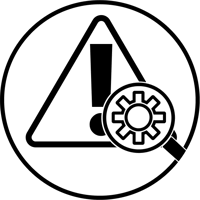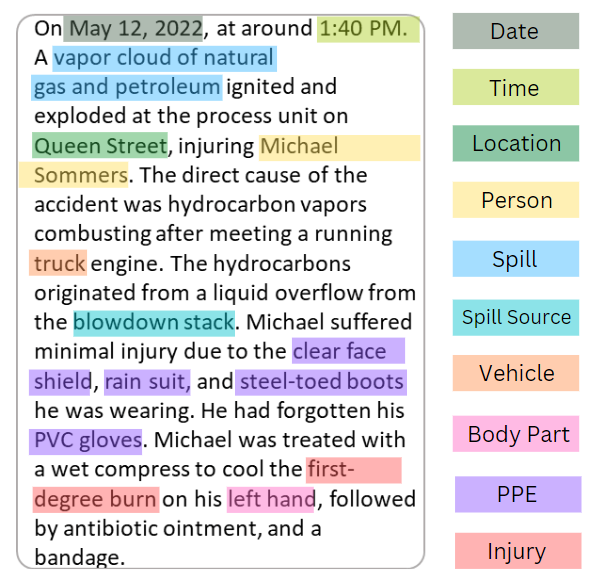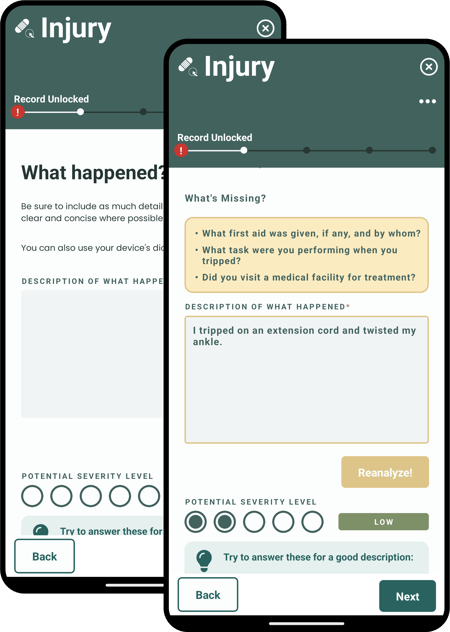Eliminate Manual Processing of Incident Reports
Trained on massive OHS datasets, EIDA can automate the analysis of thousands of unstructured descriptions to identify previously hidden themes and patterns.
What is EIDA?
The EHS Incident Description Analyzer (EIDA), is an artificial intelligence (AI) tool that is capable of comprehending unstructured Occupational Health and Safety (OHS) texts.
EIDA is a package that includes multiple Natural Language Processing (NLP) models. These models enable EIDA to understand free form OHS text the way humans do and perform functions such as:

Extracting important attributes and entities mentioned in text (like injured body part, damaged equipment, location, PPE,...).

Infer incident characteristics (like severity, potential severity, SIFP,...) and classify incidents into appropriate categories like: people, property damage, near miss, unsafe acts, unsafe conditions, process safety... and more.

Guide users to provide better incident descriptions through an interview-like Q&A process.
How Does EIDA Work?
EIDA reads and processes the mostly unused volumes of safety reporting text to massively expand your volume of usable data. This, in turn, provides expanded data to improve analytics and predictive outputs.
EIDA Consumes Unstructured Data
EIDA Generates Structured Data
This enables trend analysis and feeds predictive analytics
.png?width=2000&height=467&name=EIDA%20INFOGRAPHIC%20(1).png)
EIDA's ability to interpret OHS data unlocks additional information as it can quickly read, understand, and capture relevant data from free form text descriptions. Trained on a massive body of OHS data, EIDA can automate the analysis of thousands of descriptions identifying previously hidden themes and patterns.
Trained for OHS
EIDA understands free form incident descriptions the way that humans do.
- Important attributes and metrics such
as injuries, time, and location are
determined before any labelling
begins. - Historical and current OHS data are
then collected and analyzed. - These
OHS datasets are used to continuously
enhance EIDA through repeated
annotations and expert input. - EIDA sorts and organizes OHS data into
different categories such as incident
types, and incident classifications to
unlock new data that fill in the "gaps".

EIDA on Mobile
Safety reporting where it happens, when it happens.

- Currently found in the FIRS app, EIDA is available on mobile devices to submit reports on-site.
- In addition to enhancing detail and accuracy by being able to submit reports immediately, EIDA prompts the reporter for any crucial missing information.
- Tradespeople don't have to be authors. No longer rely on the reporter to write a blow-by-blow narrative. EIDA turns point-form reports into structured data. Also compatible with device voice-dictation.